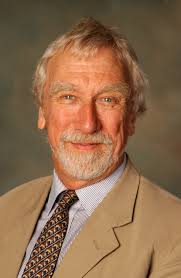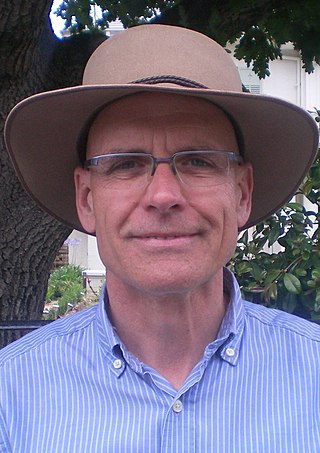
Clive Charles Hamilton AM FRSA is an Australian public intellectual currently serving as Professor of Public Ethics at the Centre for Applied Philosophy and Public Ethics (CAPPE) and the Vice-Chancellor's Chair in Public Ethics at Charles Sturt University. He is a member of the Board of the Climate Change Authority of the Australian Government, and is the Founder and former Executive Director of The Australia Institute. He regularly appears in the Australian media and contributes to public policy debates. Hamilton was granted the award of Member of the Order of Australia on 8 June 2009 for "service to public debate and policy development, particularly in the fields of climate change, sustainability and societal trends".

William Jack Baumol was an American economist. He was a professor of economics at New York University, Academic Director of the Berkley Center for Entrepreneurship and Innovation, and Professor Emeritus at Princeton University. He was a prolific author of more than eighty books and several hundred journal articles. He is the namesake of the Baumol effect.

Bruno S. Frey is a Swiss economist and visiting professor for Political Economy at the University of Basel. Frey's research topics include Political economy and Happiness economics, with his published work including concepts derived from Psychology, Sociology, Jurisprudence, History, Arts, and Theology.

Tyler Cowen is an American economist, columnist and blogger. He is a professor at George Mason University, where he holds the Holbert L. Harris chair in the economics department. He hosts the economics blog Marginal Revolution, together with co-author Alex Tabarrok. Cowen and Tabarrok also maintain the website Marginal Revolution University, a venture in online education.
Victor Alexandre Ginsburgh is a Belgian economist.
Applied economics is the study as regards the application of economic theory and econometrics in specific settings. As one of the two sets of fields of economics, it is typically characterized by the application of the core, i.e. economic theory and econometrics to address practical issues in a range of fields including demographic economics, labour economics, business economics, industrial organization, agricultural economics, development economics, education economics, engineering economics, financial economics, health economics, monetary economics, public economics, and economic history. From the perspective of economic development, the purpose of applied economics is to enhance the quality of business practices and national policy making.

Economics of the arts and literature or cultural economics is a branch of economics that studies the economics of creation, distribution, and the consumption of works of art, literature and similar creative and/or cultural products. For a long time, the concept of the "arts" were confined to visual arts and performing arts in the Anglo-Saxon tradition. Usage has widened since the beginning of the 1980s with the study of cultural industry and the economy of cultural institutions. The field is coded as JEL: Z11 in the Journal of Economic Literature classification system used for article searches.
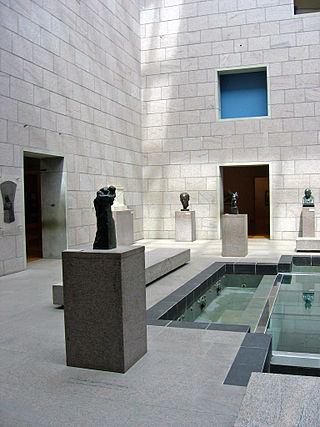
Cultural policy is the government actions, laws and programs that regulate, protect, encourage and financially support activities related to the arts and creative sectors, such as painting, sculpture, music, dance, literature, and filmmaking, among others and culture, which may involve activities related to language, heritage and diversity. The idea of cultural policy was developed at UNESCO in the 1960s. Generally, this involves governments setting in place processes, legal classifications, regulations, legislation and institutions which promote and facilitate cultural diversity and creative expressions in a range of art forms and creative activities. Cultural policies vary from one country to another, but generally they aim to improve the accessibility of arts and creative activities to citizens and promote the artistic, musical, ethnic, sociolinguistic, literary and other expressions of all people in a country. In some countries, especially since the 1970s, there is an emphasis on supporting the culture of Indigenous peoples and marginalized communities and ensuring that cultural industries are representative of a country's diverse cultural heritage and ethnic and linguistic demographics.

Robert Burton Ekelund Jr. was an American economist.
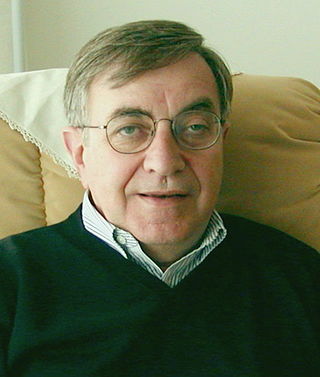
Elhanan Helpman is an Israeli economist who is currently the Galen L. Stone Professor of International Trade at Harvard University. He is also a Professor Emeritus at the Eitan Berglas School of Economics at Tel Aviv University. Helpman is among the thirty most cited economists in the world according to IDEAS/RePEc.
Cultural economics is the branch of economics that studies the relation of culture to economic outcomes. Here, 'culture' is defined by shared beliefs and preferences of respective groups. Programmatic issues include whether and how much culture matters as to economic outcomes and what its relation is to institutions. As a growing field in behavioral economics, the role of culture in economic behavior is increasingly being demonstrated to cause significant differentials in decision-making and the management and valuation of assets.
Cultural institutions studies is an academic approach "which investigates activities in the cultural sector, conceived as historically evolved societal forms of organising the conception, production, distribution, propagation, interpretation, reception, conservation and maintenance of specific cultural goods".
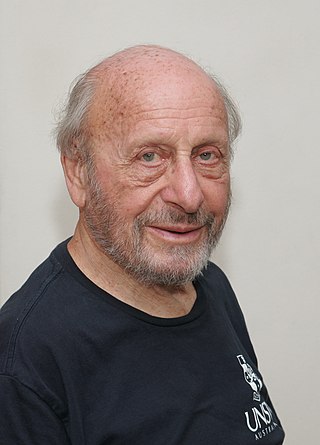
Geoffrey Colin Harcourt was an Australian academic economist and leading member of the post-Keynesian school. He studied at the University of Melbourne and then at King's College, Cambridge.

Franklin "Frank" J.B. Stilwell is an Australian political economist and Professor Emeritus. He is known for establishing, with Evan Jones, Gavan Butler, Margaret Power, Debesh Bhattacharya, Geelum Simpson-Lee and Ted Wheelwright, an independent political economy department at the University of Sydney. His research interests include theories of political economy, inequality, urbanization, and regional development, Australian economic policy and the nature of work. His textbooks on the subject are standard teaching material for all university students in Australia studying the field of Political Economy. Stilwell's contribution to heterodox economics makes him a noteworthy figure of the Australian New Left.
The international trade of fine art is most precisely defined as the trade across nations of unique, non-reproducible works by an artist. The art trade contradicts typical international trade models since it is a culturally significant good. It is not treated by consumers the same way any other commodity would because of the aesthetic value that is unique to each piece. Despite existing as a finite physical piece, unique art is still considered intellectual property. This sparks the debate as to whether art exports should be restricted for nationalistic and cultural reasons, or liberalized for the sake of a healthier international market.
Jack L. Amariglio is a North American heterodox economist. He is well known for his work on economic history, class analysis, and on economic methodology and postmodernism in economics.
Duncan K. Foley is an American economist. He is the Leo Model Professor of Economics at the New School for Social Research and an External Professor at the Santa Fe Institute. Previously, he was Associate Professor of Economics at MIT and Stanford, and Professor of Economics at Columbia University. He has held visiting professorships at Woodrow Wilson School at Princeton University, UC Berkeley, and Dartmouth College, as well as the New School for Social Research.
Glenn Alexander Withers is an Australian economist, policy adviser, and academic. He is an Honorary Distinguished Professor of Economics at the Australian National University and Visiting Professorial Fellow at University of New South Wales Canberra.
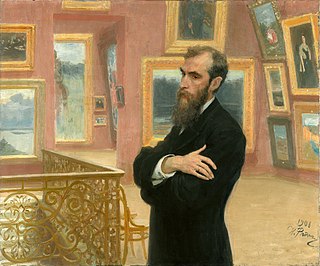
The contemporary economics of culture most often takes as its starting point Baumol and Bowen's seminal work on the performing arts, which argues that reflection on the arts has been part of the history of economic thought since the birth of modern economics in the seventeenth century.
